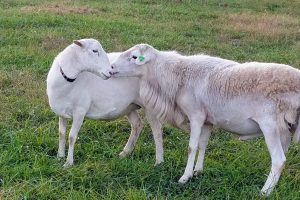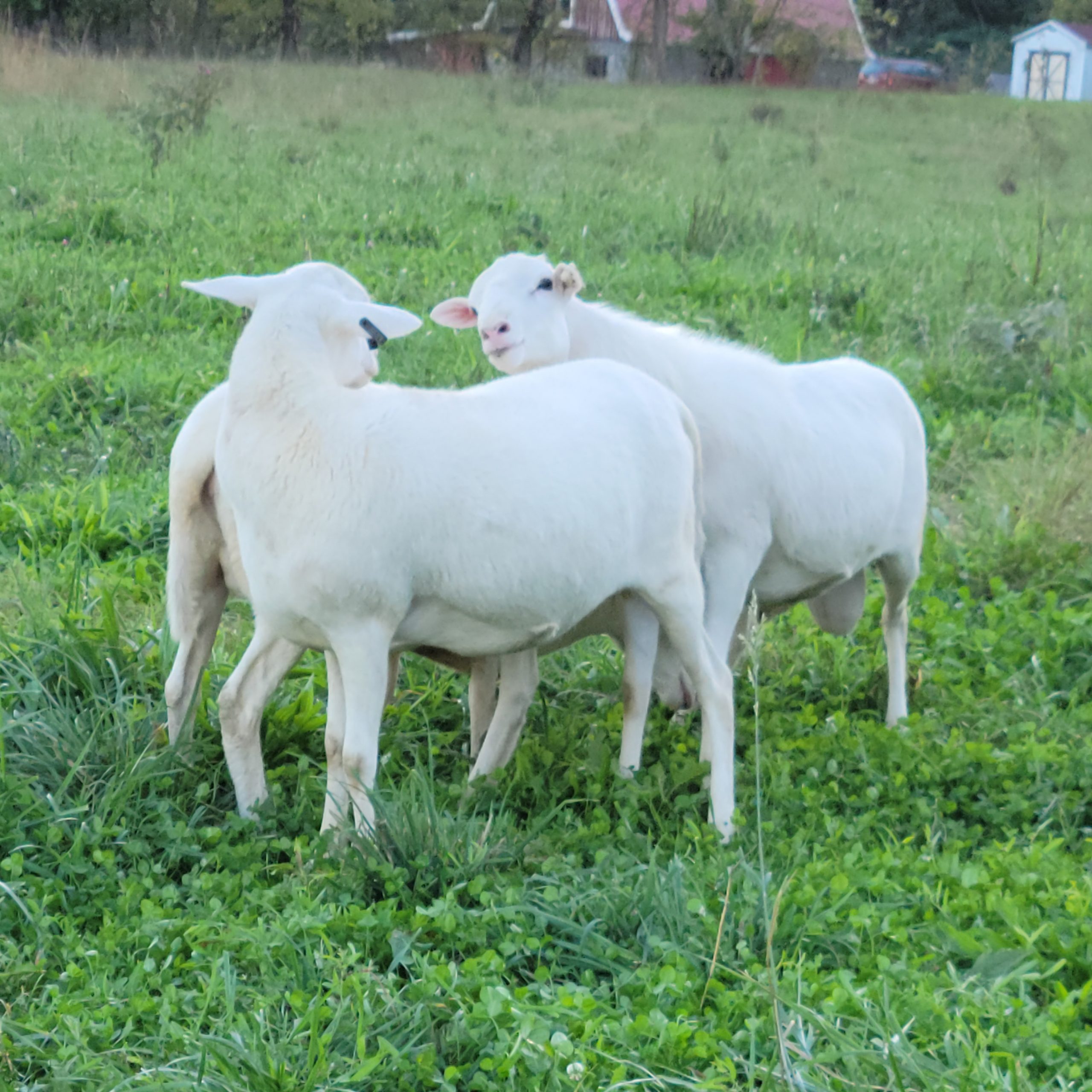Conservation Breeding
Melwood Farm uses a conservation breeding approach because the breed has a limited number of registered animals. We follow the conservation breeding methods discussed in the book by Dr. Phil Sponenberg, Managing Breeds for a Secure Future. We highly recommend that anyone interested in preserving and improving St. Croix Hair Sheep or other rare breeds read this book.
We have subdivided our flock into four groups of sheep that share similar bloodlines. One of these groups, our White Dog Farm line, is in danger of extinction, so we are working to grow that line from within. We placed our remaining three groups in a spiral breeding program. The remaining groups include our old River Bend Ranch/Stauber Farm influenced line, the Ebenezer Farm line, and a Summit Farm line. By using a spiral breeding program, inbreeding will be kept at a minimum while the valuable strains will remain intact.
Our sheep breed naturally on pasture. We separate the breeding groups of ewes into three or four different paddocks, and turn the selected ram in with each group. The ram stays with his ewes for 35 days to make sure he has a second opportunity to cover each ewe should he miss her on her first cycle.
Performance Based Selection
Beginning in 2022, we are also using estimated breeding values (EBVs) to assist us rather than relying on pedigrees and our eyes alone. As members of the National Sheep Improvement Program (NSIP), we will collect data on every St. Croix hair sheep. We will record number of lambs born, number of lambs weaned, birth type, weights, FAMACHA score, and fecal egg count (FEC). We also collect body condition scores and weights on adult ewes at pivotal points in the production cycle. NSIP uses this data to calculate estimated breeding values of each sheep throughout their lifetime.
We will select only the best lambs of each breeding group to produce future generations on our farm, or yours. We mark those that do not perform as culls and offer them as butcher sheep. Selected lambs perform well in following areas:
- Parasite Resistance – We expect lambs to have an FEC of no more than 350 eggs per gram (EPG) at 90-120 days of age and should never be more than 50 EPG in adults.
- Conformation – We do not breed or sell sheep with any major faults (undershot or overshot mouths, weak pasterns, sway backs, crooked legs)
- Growth – While St. Croix are not known for being heavy, meaty sheep, our goal is to select for this trait in order to improve as much as possible. We expect our lambs’ average daily gain (ADG) at 90 days to be 0.4 or above. We select only the top 20% of our ram lambs for breeding.
- Maternal traits – our ewes are expected to care for all their lambs and produce enough milk to wean healthy lambs.


